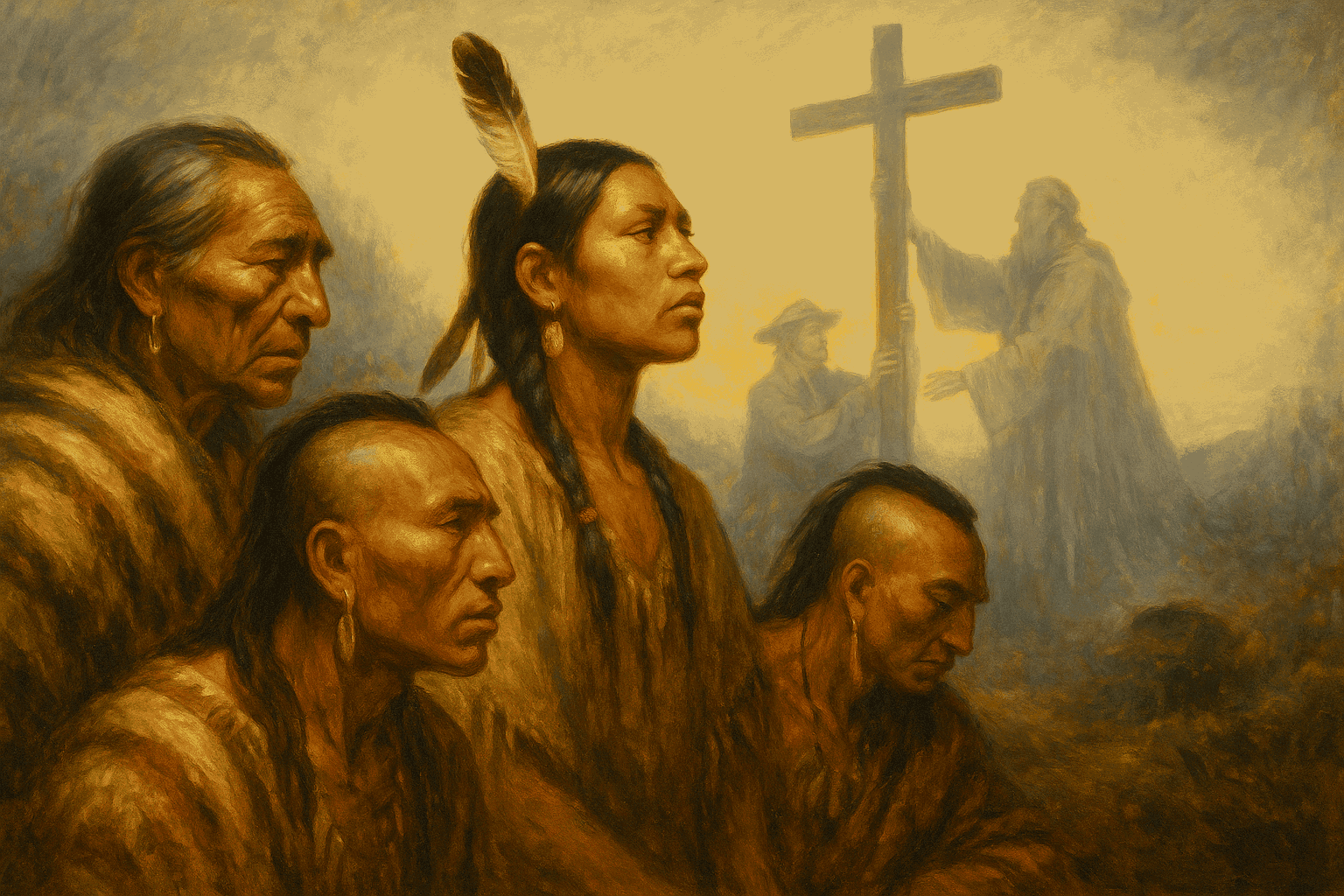How ‘Discovery’ Meant Genocide: The Catastrophic Claim on the Mississippi
‘Discovery’ is a comforting word. Genocide is the reality.
In 1682, French explorer René-Robert Cavelier, Sieur de La Salle, planted a cross at the mouth of the Mississippi River and declared the entire valley the property of France. To European monarchs, this was a triumphant expansion of empire. But for the Indigenous peoples who had lived here for millennia—the Natchez, Quapaw, Tunica, Chitimacha, Houma, and dozens of other sovereign nations—it was the beginning of a slow-moving catastrophe.
At the Northeast Louisiana Delta African-American Heritage Museum, we recognize that the history of the Delta is not just a story of European conquest or African-American resilience—it is also a story of the Native nations who were here first, whose land and sovereignty were stolen in the name of empire. La Salle’s act was more than symbolic; it set in motion centuries of violence, disease, and displacement that reshaped this region forever.
What Did La Salle’s “Claim” Really Mean for Indigenous Peoples?
A Declaration Without Consent
La Salle did not ask permission from the Natchez, Quapaw, or any other nation when he proclaimed the Mississippi Valley “Louisiana.” European powers operated under the Doctrine of Discovery, a legal fiction that said land not occupied by Christians was free for the taking. Never mind that this land was already governed by complex Indigenous political systems—systems that France ignored.
Forced Into European Wars
The French relied on Native alliances for survival, but this also dragged Indigenous nations into brutal conflicts. The Natchez Revolt of 1729—a rebellion against French encroachment—ended in massacre and enslavement, nearly wiping out the Natchez people.
Land Theft Disguised as Law
French settlers claimed land based on European farming standards, ignoring Indigenous hunting grounds and sacred sites. Later, under Spanish and American rule, this theft became official policy—culminating in the Indian Removal Act of 1830, which forced thousands from their homelands.
Cultural Erasure and Resistance
Missionaries pushed Christianity, while trade dependencies shifted traditional economies. Yet many nations, like the Tunica-Biloxi, adapted while preserving their identity. Today, their descendants continue to fight for federal recognition and land rights.
Disease and Demographic Collapse
Smallpox and measles ravaged communities that had no immunity. Some nations lost 90% of their population within decades, weakening their ability to resist further colonization.
Why This History Matters Today
La Salle’s claim was not just a historical footnote—it was the first step in a process that still impacts Indigenous communities. The legal system that allowed France to “claim” land without consent was the same system that justified slavery, Jim Crow, and ongoing struggles for justice.
At our museum, we honor the full history of the Delta—not just the pain of displacement, but the resilience of those who survived it. The Quapaw, Chitimacha, and Tunica-Biloxi are still here, advocating for their rights, while still enriching Louisiana’s culture.
Learn More with Us
African-American and Indigenous histories are deeply intertwined—from shared resistance to shared cultural survival. Visit us to explore many other historical connections to a shared past. Because history is about who we are today.



